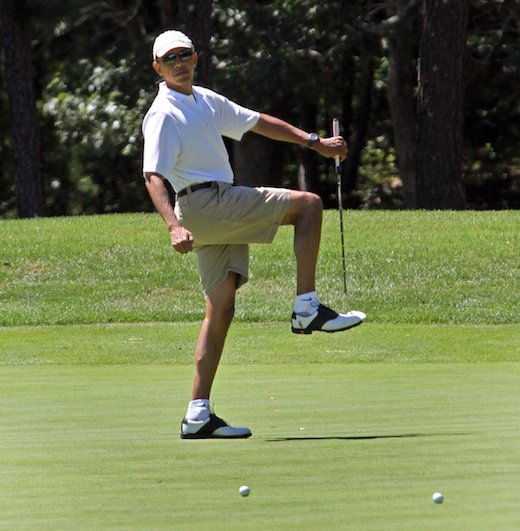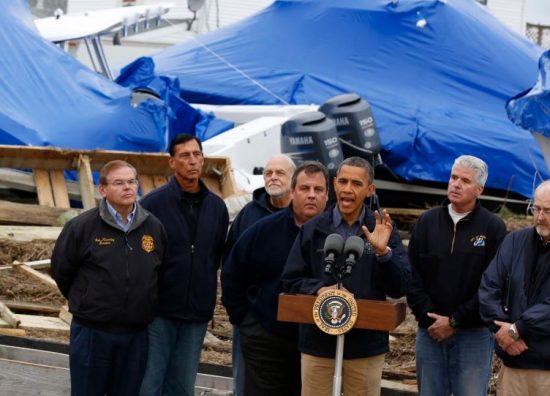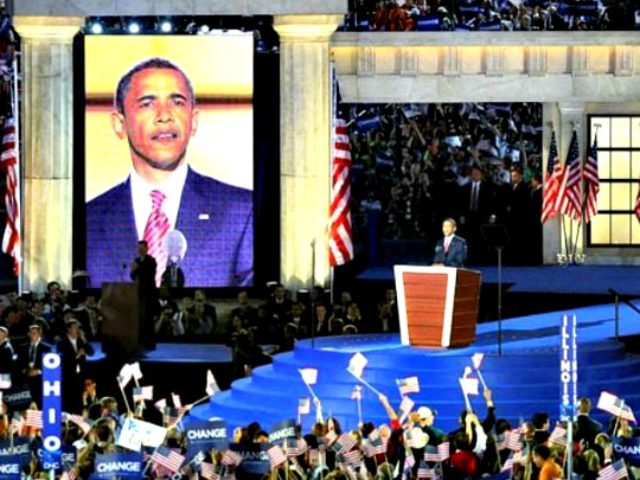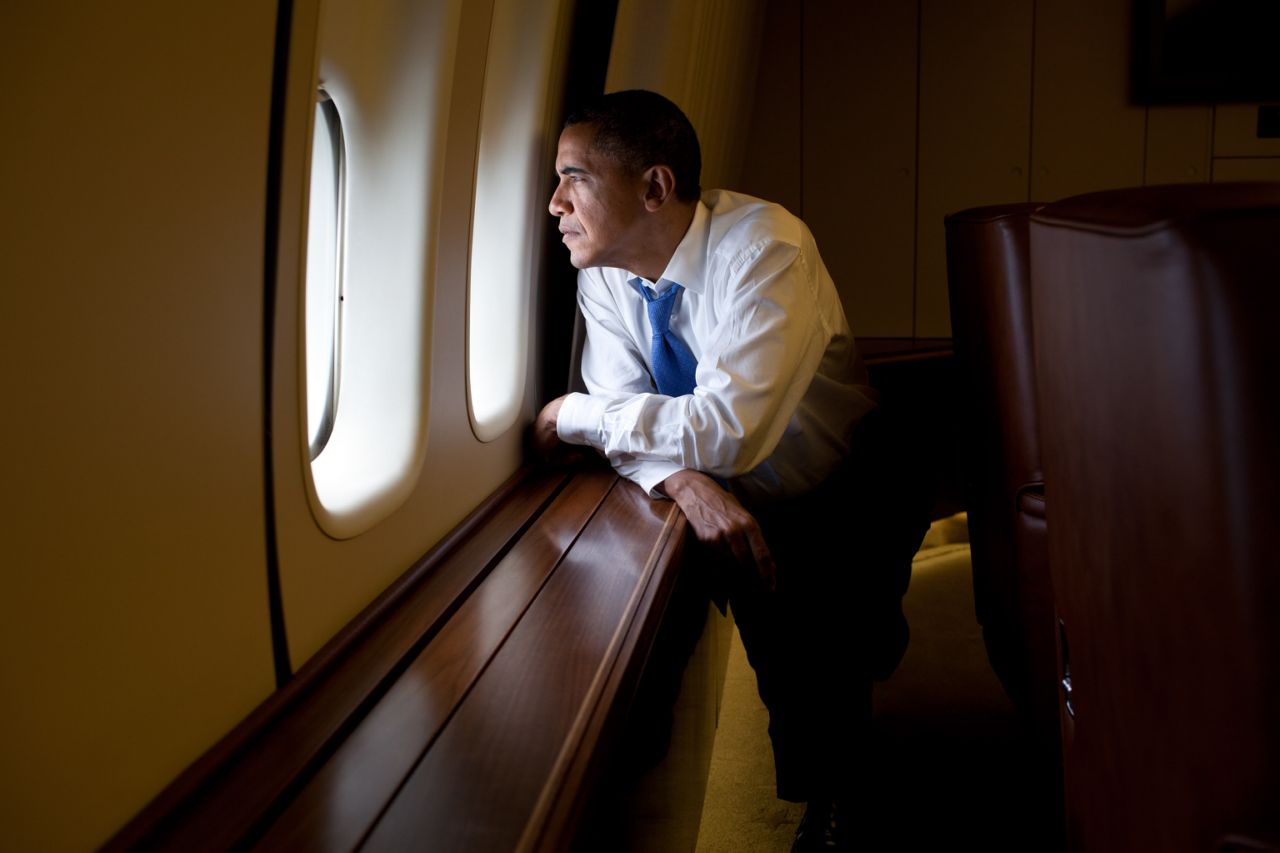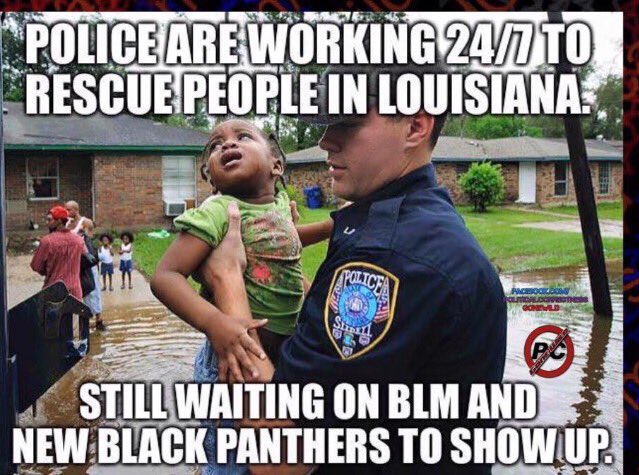If you’re uninterested in 28 minutes of video, then please read the transcript. From Hudson.org:
Senator Tom Cotton’s Remarks on Crime and Justice in America
This past Sunday, thousands of law-enforcement officers, their families, and other supporters gathered at the Capitol to observe Peace Officers Memorial Day.
Every speech given, every tribute paid, and every prayer offered was a poignant reminder: public safety and order in our country often come at a high cost.
Law and order in our communities doesn’t arise spontaneously; men are not angels, after all. Police officers put the badge on every morning, not knowing for sure if they’ll come home at night to take it off. Dedicated prosecutors toil long hours in our courts. Corrections officers and other professionals do the thankless work of administering punishment and, hopefully, providing a path for redemption. And neighborhood-watch groups and civic organizations take it upon themselves to raise standards of conduct in their communities.
During this police week, I also want to take a moment to also remember Deputy Sheriff Sonny Smith, one of Arkansas’s own. Deputy Smith was an 11-year veteran of the Johnson County Sheriff’s Office, and he also proudly served in our nation’s Navy. He was killed in the line of duty last year while responding to a burglary.
Deputy Smith’s story is a sad reminder that preserving the peace takes vigilance. It takes hard work. And it takes sacrifice—sometimes, the ultimate sacrifice.
This may seem obvious to those who dedicate their lives to keeping our streets safe. But it’s no longer so clear to some in these times of historically low crime.
We’re currently reaping the benefits of one of the great public-policy achievements in modern times: a dramatic, generation-long drop in crime. Violent crime is at a 40-year low. Property crime is at a 50-year low. Even more remarkably, this drop in crime followed a decade-long spike in crime arising out of the drug epidemic of the 1980s and early 1990s. That epidemic turned streets into literal battlefields, teenagers into foot soldiers, and too many citizens into casualties of the drug wars.
It may seem like a distant nightmare now, but make no mistake: 30 years ago, our cities were slowly dying.
Maureen Dowd, then a young metro reporter, described the ravages of the drug trade through the eyes of children living amidst it. She quoted a 10-year-old girl who called her neighborhood “the murdering area.” Other children chimed in as well: “Two days ago on the corner they stabbed a man,” said one. Another young boy confided in Dowd: “[T]he…raping, kicking, fighting. To death it scares me.”
At the peak of New York’s crisis, the city had 2,245 murders in one year—that’s over six murders every single day. In Los Angeles, a city half the size of New York, there were 1,094 murders. Nor was the crisis limited to the biggest cities. I have several family members living in Little Rock. At one point, Little Rock had the highest per capita murder rate in America, as memorialized in Gang War: Bangin’ in Little Rock, an HBO documentary.
This was the context, I would add, in which Hillary Clinton warned about so-called “super predators” while championing her husband’s crime bill, which is now much maligned by pro-leniency activists.
Many people in those days doubted whether our society could turn itself around. Maybe Central Park would forever be a no-go zone for law-abiding citizens. Maybe women would never be able to ride the subway alone again. Maybe drug gangs would always outgun the police.
These fears were understandable, but they were also wrong. We turned our society around and we made our streets safe again. But this didn’t just happen by accident; it happened because of policy changes like broken-windows policing techniques, mandatory-minimum sentences for violent criminals, 3-strikes laws, and other reforms. These sweeping changes to criminal-justice policy were championed by scholars like Jim Wilson, elected leaders like Rudy Giuliani, and tough police like Bill Bratton. These policies helped to take back our streets.
Too many people, it would seem, have forgotten these hard-learned lessons. They take our historically low crime rates for granted, acting as if safe neighborhoods are the natural state of man. They often speak and act as if criminals are victims, too.
This disturbing amnesia also comes with a policy agenda as ambitious as it is wrongheaded. Some members of Congress would reduce mandatory minimum sentences for drug traffickers and other violent felons, while giving liberal judges more discretion in sentencing again. Others want to prohibit employers from inquiring about criminal history in job-application forms; some states have already done so. Just last month, one governor restored voting rights to more than 200,000 felons, regardless of the offense committed or evidence of rehabilitation. And, of course, a nationwide movement is afoot to stigmatize law enforcement and the proven policing strategies of the last 25 years.
These policies are not merely wrong. They are dangerous. They threaten a return to the worst days of the 1990s, when law-abiding citizens lived in fear of their lives. Indeed, we may be living through the leading edge of a new crime wave. Over the last two years, murders across 56 of our largest cities are up 17 percent. The numbers are even more shocking in some cities. In Chicago, murders jumped 70 percent in the first quarter of this year alone. In Las Vegas, 81 percent. In Long Beach, 125 percent.
As a result, more and more Americans are worrying about the impact criminals are having on their communities. Last year, a Gallup poll showed that 53 percent of Americans say they personally worry “a great deal” about crime and violence, a 14-percent jump from 2014. That’s the highest figure Gallup has recorded in 15 years.
The ill-considered policies of criminal-leniency advocates and the resulting increases in crime reflect a badly misguided mindset. Criminals are not victims. Criminals are criminals. Victims are victims.
Now that may seem harsh to those who have security details and live in gated communities. From those comfortable perches, one can easily miss the silliness in the notorious old New York Times stories by Fox Butterfield with headlines like: “Prison Population Growing Although Crime Rate Drops.” It’s easy, after all, to feel virtuous about being soft on crime when you live in Chappaqua or McClean or Woodside. But when you live in Osceola or Trumann or Pine Bluff—working-class towns in my state where crime has been increasing lately—you can’t afford such woolly-headed abstractions.
What’s ironic is that this supposedly “new” and enlightened way of thinking about criminal justice isn’t new at all. The specious theory that responsibility for crime lies not with the criminal, but with society or the criminal-justice system is, in fact, very old. In the 1960s and 1970s, many academic criminologists believed that criminals commit crimes because the criminal-justice system works to “label” them as “deviants.”
The policy implications of this theory were, to say the least, unorthodox: legalize prohibited activity, reduce prison sentences, close prisons, restrain the police, and swiftly restore all rights and privileges of citizenship upon release from prison. Sound familiar? This kind of thinking created the crime waves that got us to the point where Hillary Clinton worried publicly about “super predators.” Yet all that’s old is new again, I suppose.
Now, let me stipulate that many reformers have the noblest of motives. They see crushing poverty, broken families, and struggling communities—and they want to help. Out of Christian charity, humanitarian fellow-feeling, or even their own brushes with the law, they’re seeking solutions.
Yet they’re looking in the wrong places. Modern sentencing law and policing techniques have reduced these social problems, not created them. Far from the source of the problems, our criminal-justice system is a key part of the solution. Yes, it could be reformed here and there, but wholesale criminal leniency would not only be ineffective, it would also lead to more crime, more poverty, and more lives lost. Ultimately, the criminal-leniency agenda will end up hurting the very offenders, families, and communities the reformers want to help.
Let’s consider this agenda in more detail.
As you probably know, there’s a bill in Congress now that would sharply reduce mandatory minimums for a slew of federal crimes, grant judges wider discretion to depart from these minimums, and apply reductions retroactively so that duly convicted felons will be released early. The bill’s advocates contend that we’re locking up too many offenders for too long for too little, we can’t afford it anyway, and we should show more empathy toward those caught up in the criminal-justice system.
These arguments, put simply, are baseless. They’ve been proved wrong by hard facts and by history.
Take a look at the facts. First, the claim that too many criminals are being jailed, that there is over-incarceration, ignores an unfortunate fact: for the vast majority of crimes, a perpetrator is never identified or arrested, let alone prosecuted, convicted, and jailed. Law enforcement is able to arrest or identify a likely perpetrator for only 19 percent of property crimes and 47 percent of violent crimes. If anything, we have an under-incarceration problem.
Furthermore, the federal prison population is already declining. The Sentencing Commission has already granted 32,000 felons early release from prison since 2007 because of earlier sentencing-guideline revisions, with another 38,000 to be released. This has reduced the federal prison population to 196,000 inmates, down from 214,000 in 2014 and on track for its lowest level since 2005.
And of this inmate population, only a fraction of a percent are imprisoned for an offense like mere drug possession. Even if you assume that these prisoners didn’t plea down from a more serious offense—and, believe me, most of them did—we’re talking about fewer than 500 prisoners here. If these are the so-called “low-level, non-violent, first-time” offenders that pro-leniency senators have in mind, why does their legislation extend to thousands of felons? Releasing a flood of these violent felons into our streets would surrender the hard-won gains of the last generation.
That generation started with short sentences and soft-on-crime judges. In the last crime wave, judges had vast discretion in sentencing. This meant that drug dealers often returned to the streets just days after arrest. In fact one police officer admitted to a reporter in 1984 that the majority of dealers he arrested would pay a $50 fine and be released within four days. He stated, “For us it’s cosmetics, cleaning the streets briefly. For [dealers], it’s just the cost of doing business.”
Well, the cost of doing business for criminals needed to go up. Two main factors affecting the cost-benefit calculus of criminals are the severity and certainty of a sentence. Increasing both in the 1980s contributed significantly to the massive drop in crime—as much as 35 percent of the drop according to some studies.
The truth is you cannot decrease the severity and certainty of sentences without increasing crime. It’s simply impossible.
The bill’s sponsors rarely speak of this trade-off. They don’t answer the concrete questions that matter to citizens, families, and communities: How many more crimes will be committed because of sentencing reductions? How many more lives lost? How many lives ruined and communities at risk? Let me tell you, with a recidivism rate of 77 percent for released felons, the answer is a lot, no matter how much we improve rehabilitation programs.
Instead of answering these questions, advocates for leniency often point to admittedly large government budgets for law enforcement, courts, and corrections. To which I would respond: And? After national security, what government priority is higher than law and order? Moreover, this perspective is particularly short-sighted, especially for conservatives. Put aside the cost of crime to our governments; what about the cost of crime to our society?
As for the claim that we should have more empathy for criminals, I won’t even try to conceal my contempt for the idea. I empathize first and foremost with the victims of crime and their families. We ought to give criminals a shot at rehabilitation and redemption, but primarily because it’s in our interest as a society, not because they deserve more empathy.
Now, all that said, I don’t discount the the possibility of a manifestly unjust sentence, one so out of proportion to the crime that it shocks the conscience. But that’s why the Anglo-American system of justice gives the pardon power to the executive. I support the use of pardon and commutation as a precise scalpel to identify and remedy such cases. But what we should not do is use the blunt instrument of releasing thousands of violent felons and major drug dealers because of a handful of such cases, many spurious or hypothetical at that.
I believe the criminal-leniency bill in the Senate is dead in this year’s Congress. And it should remain so if future versions allow for the release of violent felons from prison. I will, though, happily work with my colleagues on true criminal-justice reform—to ensure prisons aren’t anarchic jungles that endanger both inmates and corrections officers, to promote rehabilitation and reintegration for those who seek it, and to stop the over-criminalization of private conduct under federal law. But I will continue to oppose any effort to give leniency to dangerous felons who prey on our communities.
A second priority for the criminal-leniency movement is the so-called “Ban the Box” initiative, which would prevent employers from inquiring about criminal history on job application forms.
Ban the Box has a praiseworthy goal, which I share: helping offenders become productive members of society again. Aside from the small number of criminals sentenced to death or life without parole, all convicts will eventually return to society. It’s in their interest and ours if they leave prison a changed man or woman, turning away from a life of crime and toward productive citizenship.
But Ban the Box is not the right way to go about this. Let’s be clear: if the government dictates hiring decisions, if it seeks to deprive employers of information instead of giving them more, and if it threatens severe punishment on employers for failing to do what is allegedly “good for them,” you can be pretty sure the government’s policy is harmful and unworkable.
Some companies have already removed the Box from their forms. That’s their decision, of course, and I applaud their intentions. But for many others—particularly smaller businesses—Ban the Box regulations will increase the costs of compliance and the processing of job candidates who will ultimately prove unqualified for the work. And employers face greater litigation risks, from lawsuits filed by unsuccessful applicants and from enforcement actions brought by state and federal authorities who presume their moral superiority to benighted employers.
No doubt, ex-cons face longer odds in the job market, odds that are understandably frustrating to them. But is it any less frustrating to make it to the end of a hiring process only to lose out? Because even under Ban the Box regulations, that will be the outcome a majority of the time.
Ban the Box, in other words, is an attractive solution because it seems like a tidy solution—a quick fix that will allow us to declare victory and move on. But the truth is improving the post-prison lives of released felons requires a lot more. The policy changes we need cannot start at the point where an offender applies for a job. By that time, it’s usually too late.
We need to start earlier, while felons are still in prison. They need more educational and vocational-training opportunities to develop the skills they’ll need outside prison. When offenders are asked about their criminal history, they should be frank, but also proud of the plumbing skills they honed, or the GED they earned, or the book-keeping courses that led to a training certification. And we want them to point to the college kids who mentored them and the ministers who saved their souls as job references.
Here’s the simple truth: it’s not a job that makes ex-con a contributing member of society. It’s the skills he’s gained, the work ethic he’s developed, and the commitment to an upright life that help him get a job in the first place.
Another post-incarceration priority is the movement to automatically restore the franchise to felons upon completion of their sentences. Whether and how felons can earn back their voting rights has always been a decision left to the states—where it should remain, without federal interference.
But as states are pressured to reconsider their felon-voting rules, those advocating for automatic restoration of voting rights shouldn’t throw around irresponsible charges that disagreement with this policy is illegitimate, un-American, or racist. The principle that felons surrender their voting rights when they commit a crime is embedded in our Constitution, after all.
Unfortunately, advocates for felons like to throw around these poisonous accusations. Now, it’s true there were felon-disenfranchisement laws that deliberately targeted blacks after Reconstruction. Each of those laws has been justly struck down by the Supreme Court or amended to rid them of their original racial animus.
But that sad chapter in our history doesn’t undermine the logic behind modern felon-disenfranchisement laws. Should murderers, rapists, and others whose behavior fall so far outside the norms of our society be immediately accommodated? Given recidivism rates, should we create an automatic pro-crime constituency in our society? Should felons be trusted to elect legislators who make the law, prosecutors who enforce it, and judges who apply it?
As with many charges of racism, we ought to reject the heated rhetoric and instead acknowledge the realities, in this case the costs associated with the immediate restoration of voting rights to felons. An offender who automatically obtains the franchise will have little reason to buy back into the social contract and no motivation to re-learn the responsibilities of citizenship.
I personally believe most felons should ultimately be eligible for restoration of their voting rights, but a much better approach is to provide felons with a roadmap of rehabilitation. After relatively modest periods of demonstrated obedience to the law and lawful employment, for instance, states could reinstate voting rights upon individual application by a felon. This approach would be far preferable to immediate, automatic restoration, especially when ordered by erstwhile political operatives for the electoral benefit of their political paymasters.
Finally, I want to turn to policing techniques and the growing assault on law enforcement. In the past two years, our country has seen several high-profile use-of-force incidents: the shooting of Michael Brown, the suffocation of Eric Garner, and the death of Freddie Gray, among others.
I’ve spoken with police officers about these incidents, and I can report that they feel about abusive cops the way most soldiers feel about misconduct in the ranks: they’re among the first who wish to see them disciplined. And if there are systemic problems in certain districts, it’s the law-abiding police departments that wish to see them reformed, and quickly.
That’s why full investigations of use-of-force incidents should occur and all the facts must be considered. That’s why the Department of Justice is collecting reliable national data on use-of-force incidents for use in developing training and protocols to help officers distinguish and handle situations involving the mentally ill, the substance-addled, and the truly threatening.
After all, no officer wants to be involved in a justified use of force proven unnecessary after the fact, any more than soldiers in Iraq and Afghanistan wanted to make what proved to be the wrong decision in a shoot-don’t-shoot situation. Those decisions, even if justified, live with you forever, believe me.
But what should not and cannot occur is a rush to demonize law enforcement whenever force is used. In the absence of facts and hard data, we’re vulnerable to heart-wrenching images, to our own biases, and to cheap demagoguery.
This is dangerous. We’ve already seen one retaliatory attack fueled by misguided rage. In New York, a gunman claiming to seek revenge for Ferguson ambushed and killed Officers Rafael Ramos and Wenjian Liu.
And at a broader level, anti-law enforcement sentiment is fueling a movement to roll back vigilant policing methods, the very techniques that are responsible for the historic drop in crime since the 1980s. In the very city where these methods originated—New York City—there’s an ideological mayor who campaigned against these policing methods and pointed to New York City’s Finest as part of the problem, rather than the solution. No wonder they turned their backs on him. I would too.
This anti-cop sentiment is surely driving the so-called “Ferguson Effect,” as FBI Director Jim Comey has called it. When professional protestors stigmatize the police as racist knuckle-draggers, when their vigorous enforcement of the law is constantly and unfairly criticized and undermined, a chilling effect on policing is nearly unavoidable. And the result is the disturbing increases in violent crime of the last two years. President Obama and others in the criminal-leniency movement are in denial about this. But it’s something more and more criminologists and law enforcement officials are confirming.
Let me make something clear: black lives do matter. The lives being lost to violence in America’s cities are predominantly those of young black men, with devastating consequences for their families and their communities.
But the police aren’t the culprits. In nearly every case, the blood is on the hands of criminals, drug dealers, and gang members. Bill Clinton recently exclaimed to protestors, “You are defending the people who killed the lives you say matter.” For once, he was right. And it’s the police who are trying to protect those lives and prevent those murders. We shouldn’t stigmatize them; we should thank them.
And that’s what most people do. What critics of vigilant policing miss is that communities—including minority communities—overwhelmingly approve of “broken windows” tactics. They want low-level crime stopped. They want street corners cleared at late-morning hours so that school kids don’t have to walk among used needles and the lingering smell of urine and marijuana. They want safe neighborhoods.
In northeast Arkansas, there’s a town called Blytheville. Blytheville has faced some tough times. Its population has fallen by 40 percent, especially since the Air Force base closed. Blytheville is also majority African-American. It’s faced a serious drug and crime problem. Last year, in a major operation, hundreds of FBI agents raided the town in the dead of night to arrest 70 drug dealers.
What was the reaction of the community? It wasn’t anguish. It wasn’t fear. It wasn’t indignation that law enforcement used aggressive tactics.
The reaction was unalloyed gratitude. One woman ran up to an FBI agent. She cried tears of joy. The operation, she said, “was the answer to [her] prayers.”
There’s another Blytheville resident, a woman named Vivian Harrison. Two years ago, her son Justin was shot and killed in a senseless murder. She awoke the day of the FBI raid, and she praised it. She said she’d like to see the town rid of crime to the point where “decent, hardworking people can go on with their lives without being in fear.”
I’ll conclude with what I wish were a joke, but unfortunately it’s not. The Obama administration has become so solicitous towards criminals that we’re not supposed to call them criminals at all. Now the new term is “justice-involved individual.” I’m not joking, this is the administration’s new term for criminals: “justice-involved individual.” That alone is a crime against the English language.
But it’s much worse: it reflects the dangerous mindset that criminals are victims, that the justice system somehow happened to them. They didn’t commit a crime, they became “involved” in the justice system.
Let me say again: Criminals are not victims. Criminals are criminals. Victims are victims.
When we talk about crime and justice, we should never forget the actual victims of crime: people like Vivian Harrison, her murdered son, and the other residents of places like Blytheville. These are the people I have in mind when we make criminal-justice policy. So pardon me if I err on the side of being a little too tough on crime, rather than a little too soft on crime. It’s only innocent lives hanging in the balance, after all.
For their sake, we ought not make radical changes to a justice system that has delivered so much hope to so many communities since the crime wave of the last generation. We ought not discard proven strategies for political fashions. And we ought not care for criminals more than we care for victims and their families and communities.
I agree primarily, and disagree on one point.
He cannot say that, but I can, because I am running for nothing nor must I be “politically correct” in any way. I am the most free person ever: one who has retired, owes nothing to a job or the government, has no supervisors, and answers to no one but my own conscience and knowledge of history, predicated upon my training, education and experience.
Black lives don’t matter to Demorats. Black lives don’t matter to Leftists. Again, they make perfectly useful implements with which to bash certain other GOWP segments of society over the head. This country will begin to parse out respect to young urban black males when they begin to respect themselves and thusly others. Children. Women.
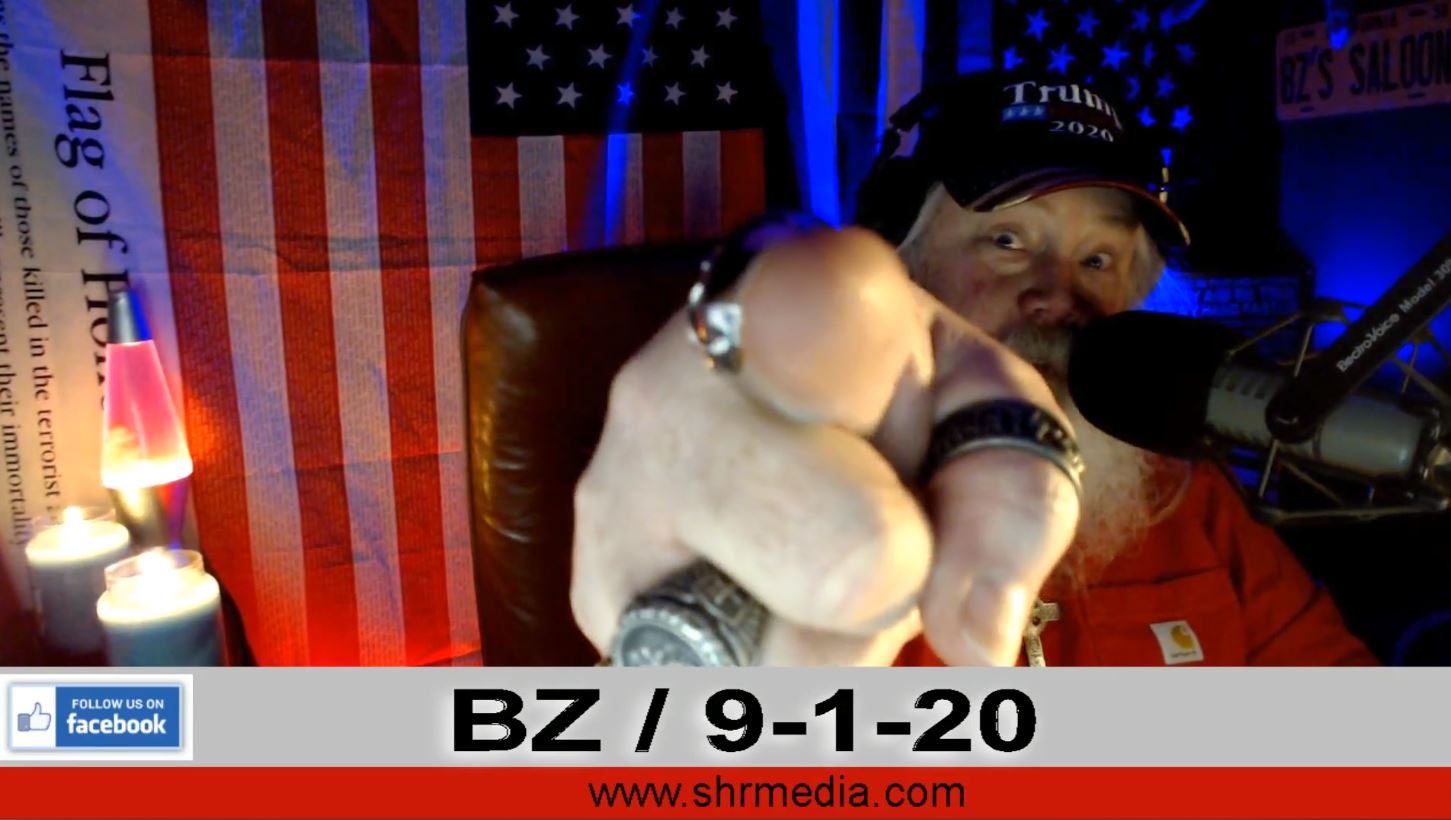 Hour 1: BZ spoke again to JEFF DUNETZ about the Israel / UAE deal.
Hour 1: BZ spoke again to JEFF DUNETZ about the Israel / UAE deal.


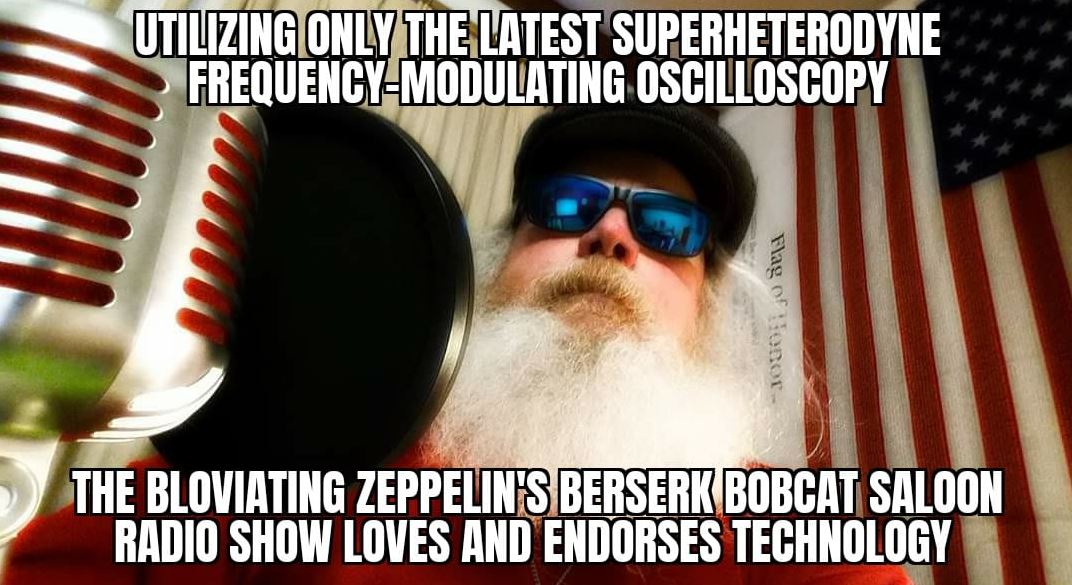 Hours 1 and 2:
Hours 1 and 2: 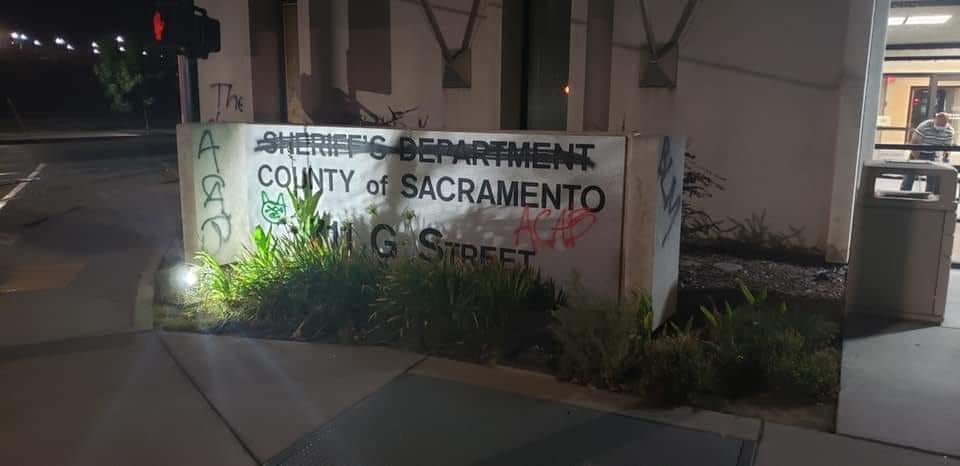
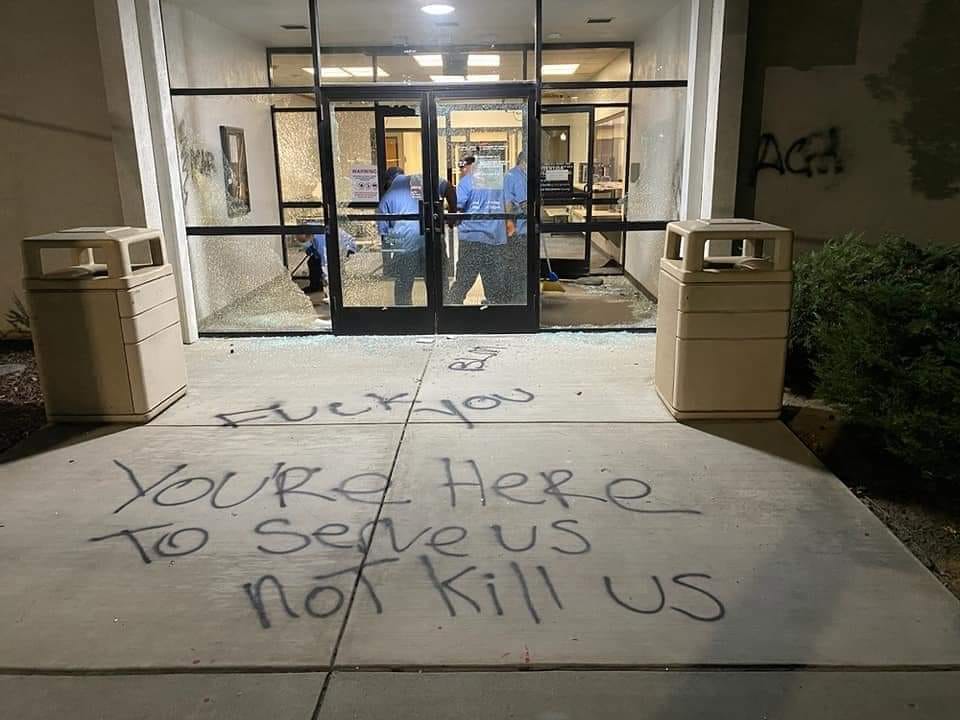
 Additionally, JACK and
Additionally, JACK and 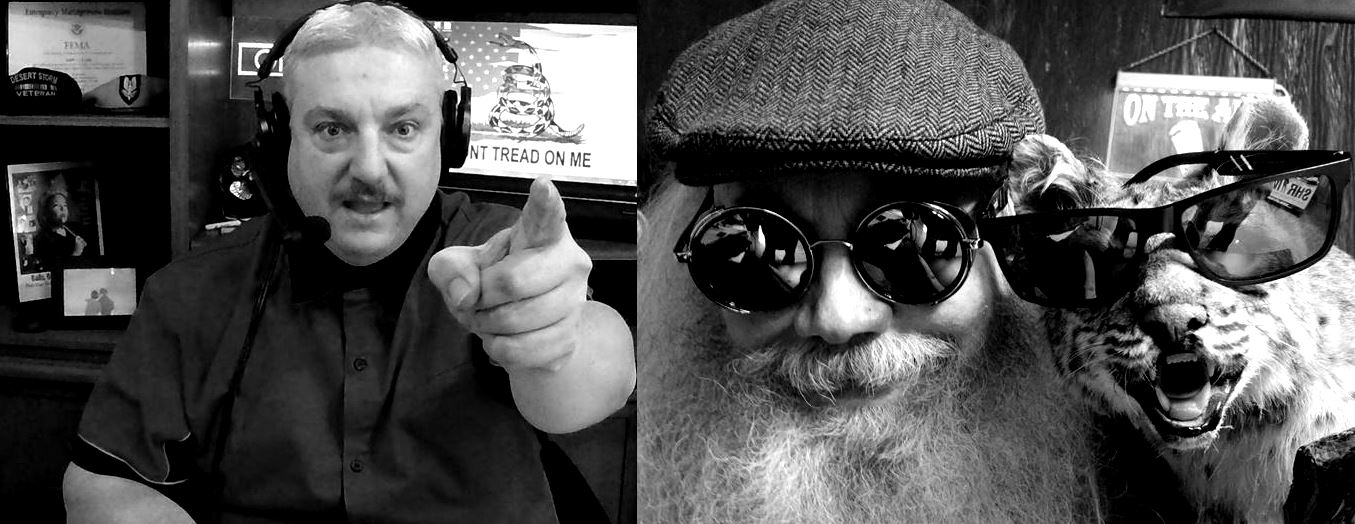
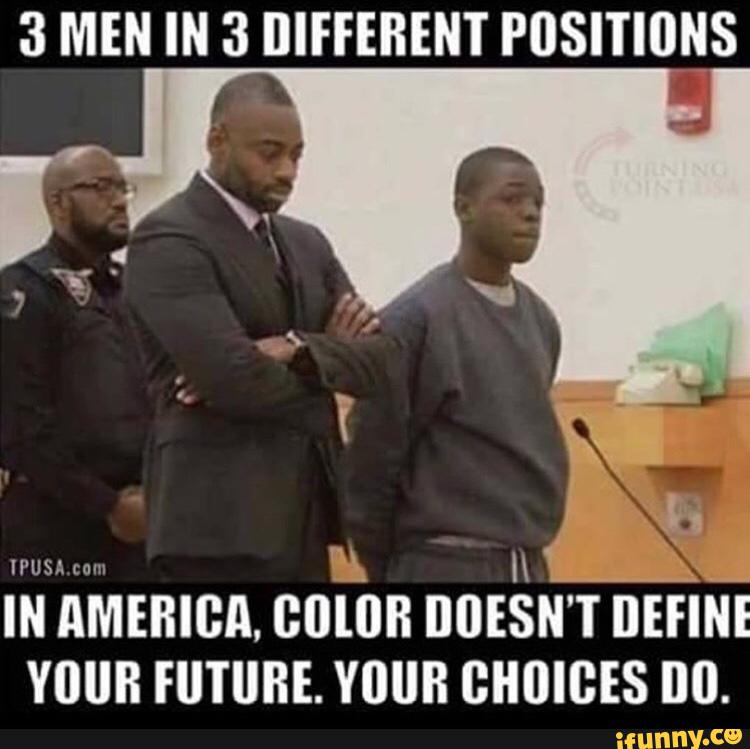 From the Massachusetts Coalition of Police,
From the Massachusetts Coalition of Police, 